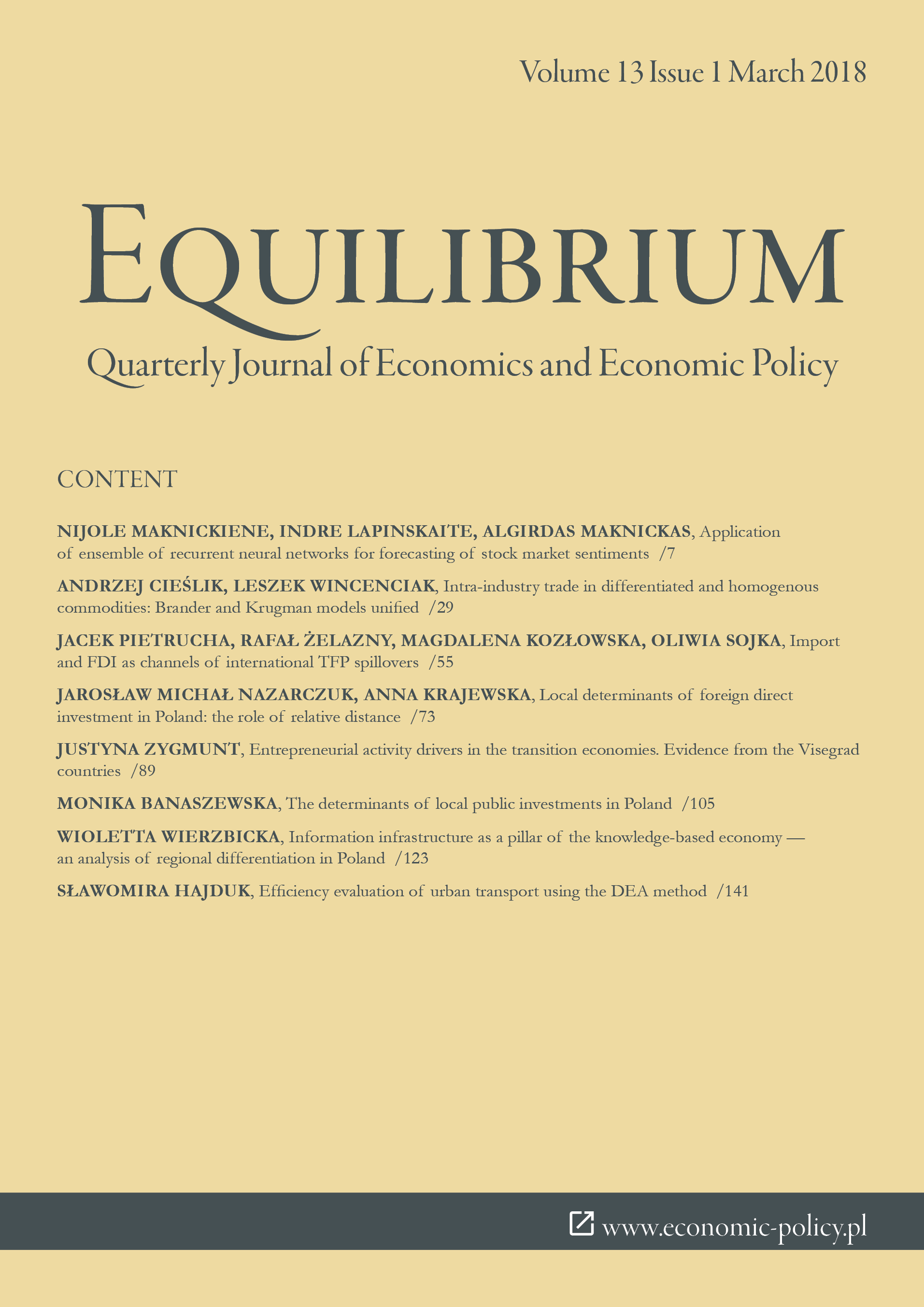Information infrastructure as a pillar of the knowledge-based economy — an analysis of regional differentiation in Poland
Information infrastructure as a pillar of the knowledge-based economy — an analysis of regional differentiation in Poland
Author(s): Wioletta WierzbickaSubject(s): Economy, Geography, Regional studies, Present Times (2010 - today), ICT Information and Communications Technologies
Published by: Instytut Badań Gospodarczych
Keywords: information infrastructure; knowledge-based economy; regional differentiation; divergence; convergence;
Summary/Abstract: Information infrastructure is a very important pillar within a knowledge-based economy. The widespread use of information and communication technologies facilitates effective communication, dissemination and processing of information and knowledge. It also creates new opportunities for the effective use of knowledge and information in building competitive advantage. Information infrastructure is also a significant determinant in the development of territorial units, and therefore it affects the regional dimension of building the knowledge-based economy in Poland. Purpose of the article: The purpose of the study was to evaluate regional differentiation of the level of information infrastructure in Poland, and changes which occurred in this respect between 2010 and 2015. An attempt was made to provide an answer to the following question: Are regional differences in the level of information infrastructure in Poland increasing or decreasing, i.e. is a regional divergence or a regional convergence process taking place in this respect? Methods: Taxonomic methods were used, including linear ordering based on a synthetic variable and a method of grouping linearly-ordered objects. Findings & Value added: The regional differentiation of the level of information infrastructure in Poland has slightly decreased, which means, that a slow convergence process has taken place in this respect. This fact is confirmed by the value of the variation coefficient, which fell from a level of 17.6% in 2010 to a level of 14.4% in 2015. Convergence processes were observed in twelve provinces. In the case of seven of them, they had the nature of a catching-up effect, and in the case of the remaining five — a lagging-behind effect. Divergence processes were observed in four provinces. The Dolnośląskie and Mazowieckie Provinces distanced themselves from other areas of the country. In the Małopolskie and Opolskie Provinces a marginalization effect was observed.
Journal: Equilibrium. Quarterly Journal of Economics and Economic Policy
- Issue Year: 13/2018
- Issue No: 1
- Page Range: 123-139
- Page Count: 17
- Language: English

